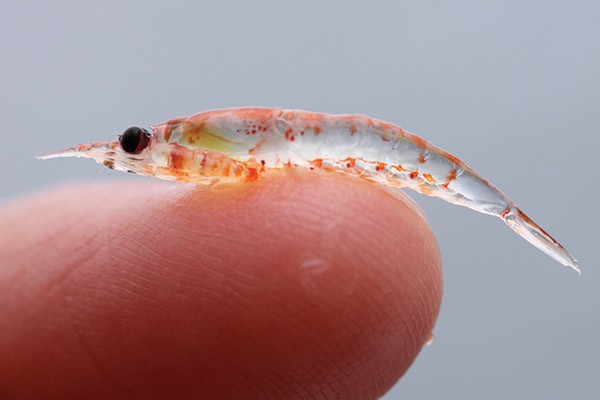
NCCOS-supported researchers investigated the physiological tolerance of tropical krill and the jumbo squid (Dosidicus gigas) to the temperatures and oxygen gradients encountered during their vertical migration across oxygen minimum zones. They expected to find that climate warming and deoxygenation would dramatically compress their native habitat, forcing them to shift their range into more comfortable temperate climes. In contrast to that expectation, they found that cold, rather than warm or hypoxic (low oxygen), waters inhibited their range. However, under a changing climate this current barrier could be overcome by increasing water temperatures, as has been shown by temporary range expansions of these species under El Niño and marine heatwaves.
Vertical migrators (also known as diel migrators) are species that move into deeper water (~200–400 m) during the day to hide from predators and into shallower water at night to feed. Vertical migrators such as krill serve as a key food source for many marine species. Range expansion from tropical to temperate waters is a concern to resource managers as it impacts food web dynamics and productivity of ecologically and economically important fishery species and marine mammals and seabirds that depend on them.
